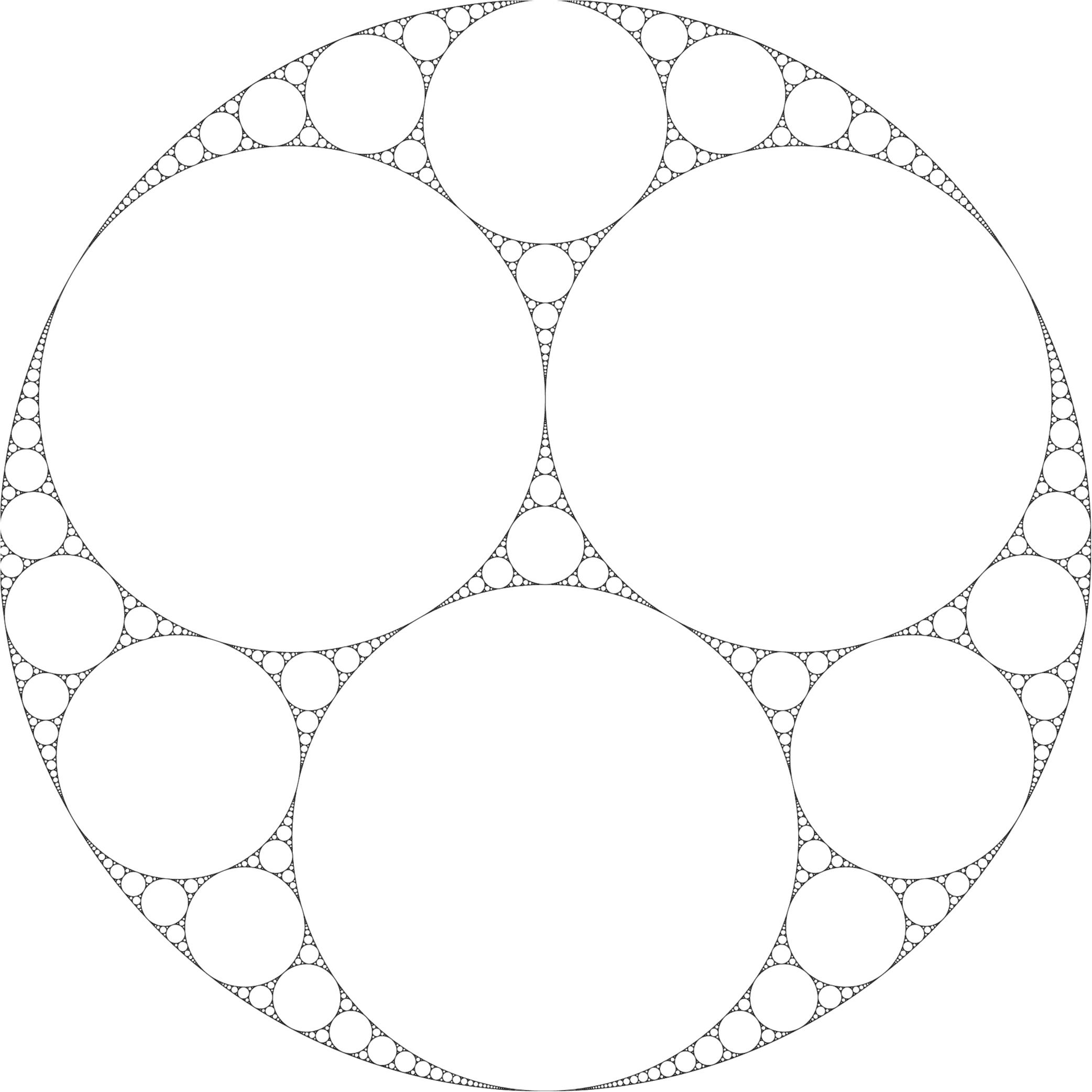Estimate for the fractal dimension of the Apollonian gasket in d dimensions
Techniques from random sphere packing predict the dimension of the Apollonian gasket, a fractal made up of non-overlapping hyperspheres.
Physical Review E 81, 61403 (2010)
R. Farr, E. Griffiths




LCP












We adapt a recent theory for the random close packing of polydisperse spheres in three dimensions in order to predict the Hausdorff dimension of the Apollonian gasket in dimensions 2 and above. Our approximate results agree with published values in 2 and 3 dimensions to within 0.05% and 0.6% respectively, and we provide predictions for dimensions 4 to 8.